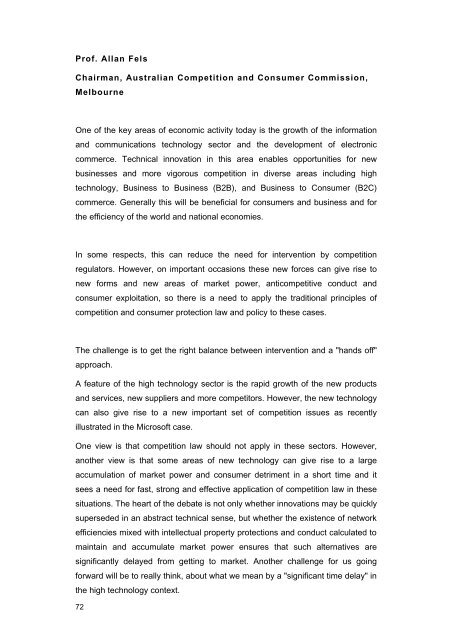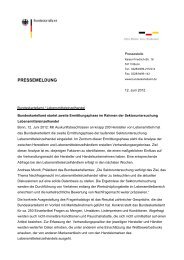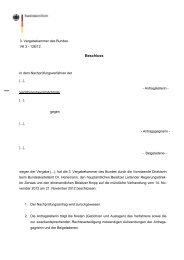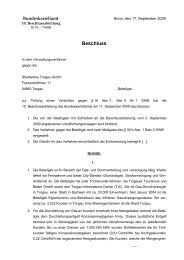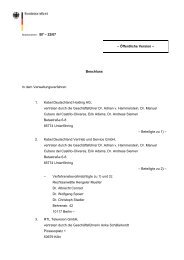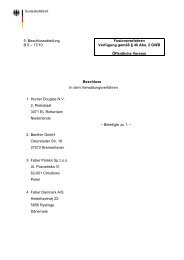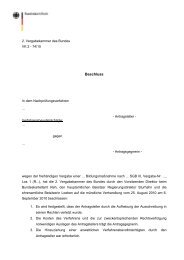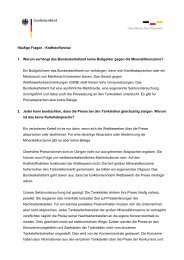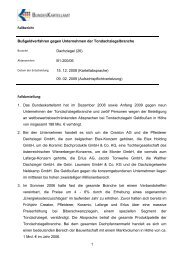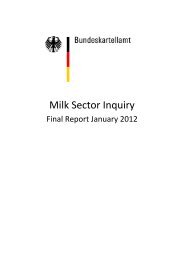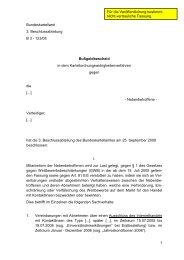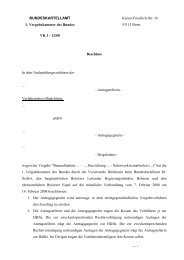21. und 22. Mai X. Internationale ... - Bundeskartellamt
21. und 22. Mai X. Internationale ... - Bundeskartellamt
21. und 22. Mai X. Internationale ... - Bundeskartellamt
Erfolgreiche ePaper selbst erstellen
Machen Sie aus Ihren PDF Publikationen ein blätterbares Flipbook mit unserer einzigartigen Google optimierten e-Paper Software.
Prof. Allan Fels<br />
Chairman, Australian Competition and Consumer Commission,<br />
Melbourne<br />
One of the key areas of economic activity today is the growth of the information<br />
and communications technology sector and the development of electronic<br />
commerce. Technical innovation in this area enables opportunities for new<br />
businesses and more vigorous competition in diverse areas including high<br />
technology, Business to Business (B2B), and Business to Consumer (B2C)<br />
commerce. Generally this will be beneficial for consumers and business and for<br />
the efficiency of the world and national economies.<br />
In some respects, this can reduce the need for intervention by competition<br />
regulators. However, on important occasions these new forces can give rise to<br />
new forms and new areas of market power, anticompetitive conduct and<br />
consumer exploitation, so there is a need to apply the traditional principles of<br />
competition and consumer protection law and policy to these cases.<br />
The challenge is to get the right balance between intervention and a "hands off"<br />
approach.<br />
A feature of the high technology sector is the rapid growth of the new products<br />
and services, new suppliers and more competitors. However, the new technology<br />
can also give rise to a new important set of competition issues as recently<br />
illustrated in the Microsoft case.<br />
One view is that competition law should not apply in these sectors. However,<br />
another view is that some areas of new technology can give rise to a large<br />
accumulation of market power and consumer detriment in a short time and it<br />
sees a need for fast, strong and effective application of competition law in these<br />
situations. The heart of the debate is not only whether innovations may be quickly<br />
superseded in an abstract technical sense, but whether the existence of network<br />
efficiencies mixed with intellectual property protections and conduct calculated to<br />
maintain and accumulate market power ensures that such alternatives are<br />
significantly delayed from getting to market. Another challenge for us going<br />
forward will be to really think, about what we mean by a "significant time delay" in<br />
the high technology context.<br />
72


